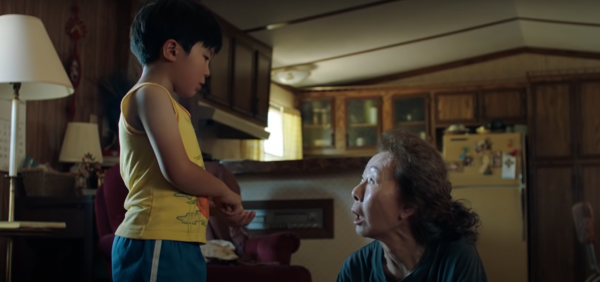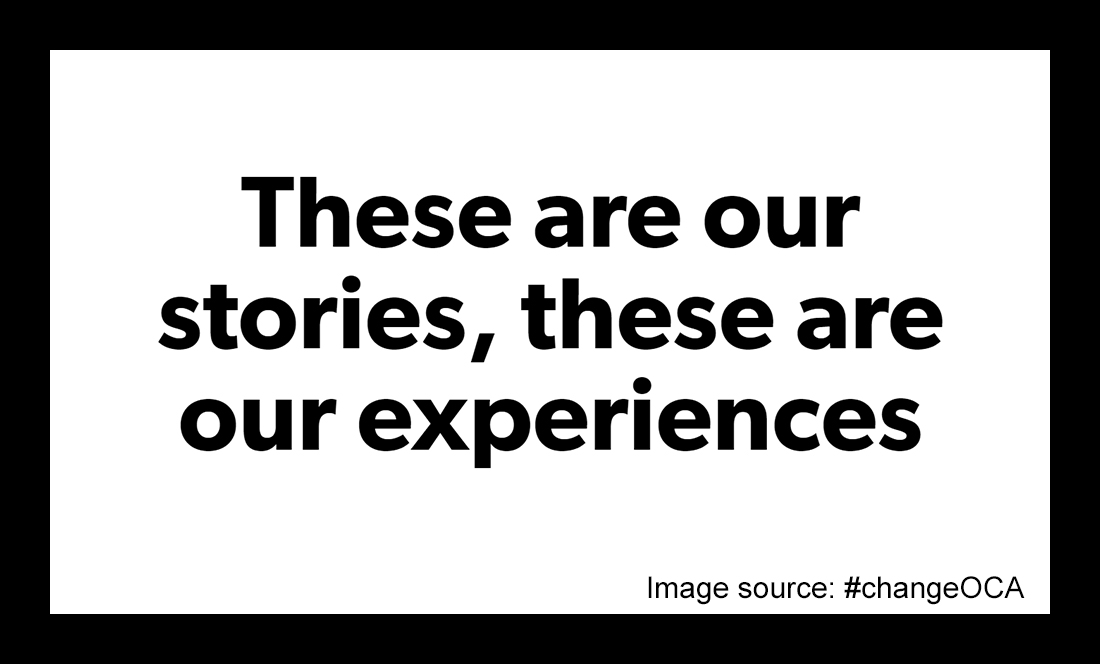By: Victoria M. Huỳnh
When Minari was omitted from the Golden Globes’ “main” categories for Best Picture, Asian diasporas came to its defense, arguing for its “all-Americanness” to make sense of their (un)placehood. But claims to Amerikanness are inherently predicated on settler-colonial logics of Indigenous and Black genocide, and on the dispossession of our own homelands.
Rather than claiming belonging to U.S. empire, I feel Minari serves a necessary and wholly different purpose: it powerfully unsettles Korean/American — and potentially Asian/American — understandings of “belonging.”
Note: This essay contains mild spoilers for the film ‘Minari’ which will be available for release on February 12, 2021.
Rather than claiming belonging to U.S. empire, I feel Minari serves a necessary and wholly different purpose: it powerfully unsettles Korean/American — and potentially Asian/American — understandings of “belonging.”
Earlier this month, Lee Isaac Chung’s Minari held an advanced screening on Korean/American Day for Asian/American media writers. With its warm-toned, timeless visuals and heartfelt portrayal of the Yi family — parents Monica (Yeri Han) and Jacob (Steven Yeun), children David (Alan S. Kim) and Anne (Noel Cho), and grandma Soonja (Youn Yuh-jung) — Chung achieves a sincere and sometimes lighthearted account of the conditions facing Korean working-class migrants trying to make ends meet in 1980s Arkansas.
Minari focuses on the imperfect humanity of these leads, who have no choice but to try. While soft-hearted embraces from grandma Soon-ja and heated arguments between two struggling parents over unpaid bills resonate across immigrant generations alike, it would be disingenuous and co-optive to assimilate Minari’s story into the “all-American” film trope about the “classic immigrant narrative” in pursuit of the “American Dream”.
Instead, Minari takes root differently. Listening to a Korean song playing on T.V., grandma Soonja reminds Monica and Jacob: “you used to love this song.” Both characters — tired from a long day working and arguing with each other — briefly look up as 6-year old David and older sister Anne ask grandma Soonja, “Really?” The scene cuts with grandma Soonja muttering to the children, “they come to America and forget everything.”
This moment abridges Minari in many ways, indirectly speaking to the aftermath of the Korean War. Known as the Forgotten War (and not by accident), the Korean War meant the destruction of land and resources, resulting in the militarized dispossession of Korean self-determination at the hand of U.S. imperialist manipulation, sanctions, and nuclear warfare. Having migrated to the U.S. in the postwar 1980s, the Yi family – like many Korean migrants of the era – came to the U.S. looking for better conditions. Just as grandmother Soonja is caught muttering to the children about their parents, this Korean/American production itself unsettles the American Dream through its exploration of a family trying to make ends meet in the very country that displaced them. The film poses the difficult and sometimes self-contradictory question: what must you “forget”, while surviving in the U.S.?
The film poses the difficult and sometimes self-contradictory question: what must you “forget”, while surviving in the U.S.?
When grandma Soonja arrives at the farm, she plants minari, a medicinal plant whose seeds she brings over from Korea. With the help of David and Anne, Soonja nurtures their growth alongside a creek near the Yi’s family home. Simultaneously, through the presence of spunky, heartwarming grandma Soonja, the Yi family starts to remember what they had left behind.
The ways in which the characters move the film along- mainly through facial expressions, subtle gestures, and simple rituals – evoke the unspoken ways in which migrants like the Yi family find strength through each other. Whether it is how grandma Soonja cracks open chestnuts with her teeth, or how she transports expensive herbal tonics from Korea for David — a boy whose heart was broken literally and figuratively — we come to see that it is grandma Soonja, herself, who has taken root as the family’s minari.
This film is not about assimilation nor the exceptionalist “land of freedom” many make America out to be; it is about reclaiming the things Monica, Jacob and their children realize they cannot live without. And that the things that the Yi family left behind or forgot in Korea have, with grandma Soonja’s arrival, grown their way back into the family; and with that, too, comes intergenerational healing.
This film is made up of all of the things we forgot that (our) grandmothers, minari, and Minari serve to remind us of: “Wonderful, wonderful minari, minari, minari…” Just as grandma Soonja said that minari could grow anywhere; so, too, does the will of the Yi family.
Minari is planned for widespread theatrical release on February 12, 2021.
Correction: An earlier version of this post incorrectly spelled Lee Isaac Chung’s name. It is spelled Chung, not Chang. We apologize for the error.
A note on terminology: In using “Korean/American” or in proximity “postimperial ‘exile'”, I cite the work of Crystal Mun-hye Baik and Jodi Kim respectively. Dr. Baik writes, “following the work of Laura Hyun Yi Kang, I use the solidus between “Korean” and “American” to indicate the volatile making of ‘Koreans’ into legible Americans within the fraught contexts of U.S. national politics and Cold War militarization.” (Baik, Reencounters: On the Korean War & Diasporic Memory Critique)
Victoria M. Huỳnh is a Cambodian-Viet-Teochew student of anti-imperialist Asian feminism writing on occupied Ohlone and Muwekma Ohlone land.
Learn more about Reappropriate’s guest writing program and submit your work here.


